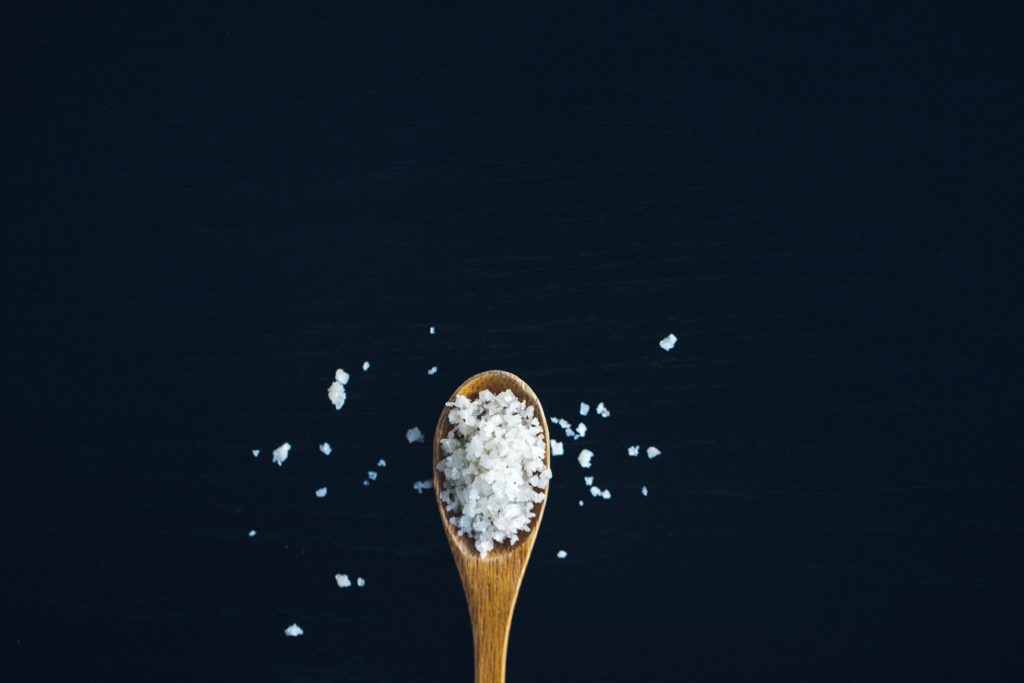The average person receives 75% of their sodium intake from processed foods, which probably doesn’t surprise you. BUT I’ve noticed a number of people coming to see me who are at the other end of the spectrum – avoiding salt altogether. The ideal is reducing processed foods and adding high quality salt to meals made at home. Salt is not a bad thing. The big picture is keeping the electrolytes in our body balanced so we don’t get symptoms from too much or too little salt intake.
Why is salt important?
- Salt is vital for out body’s internal communication! Sodium ions create action potentials used to transmit electrical signals in nervous tissue.
- Symptoms of low salt include irregular heartbeats (palpitations, arrhythmias, slow heart rate), lightheadedness when moving from sitting to standing, and heartburn.
- Heartburn is due to not enough hydrochloric acid (HCl) in the stomach. Low HCl is due to not enough salt and calcium. When HCl is low, the peptide hormone gastrin increases, which opens the sphincter separating the stomach from esophagus, resulting in reflux traveling up to the throat.
Salt quality matters!
- Avoid iodized table salt since it is heavily processed, removing most beneficial qualities, bleached, and contains chemical additives.
- Himalayan and sea salt are alright but lack most trace minerals.
- Celtic Sea Salt has the best nutritional profile. It is unrefined and contains many minerals, including magnesium, calcium, potassium, and trace amounts of iodine. (Much of the population is deficient in magnesium and potassium.)
Using Salt
- Salt your food to taste. Prevent over-salting by adding most of salt after cooking, to your individual portion.
- As the weather warms up, replace electrolytes lost through sweating by adding a pinch of Celtic Sea Salt to your water with some lemon juice for a refreshing drink.
PS: Iodine is a necessary nutrient but only small amounts are needed. Best ways to include iodine in your diet are through weekly snacking on seaweed sheets or sprinkling dried kelp as seasoning over pasta, fish, chicken, or rice dishes.
This is general information and not medical advice. If you find yourself having chronic salt cravings, lightheadedness, or heartburn, give the office a call at #530-848-6364 or make a Discovery Call https://davisnaturopathicmedicine.setmore.com/ to discuss how we can help you feel better.

